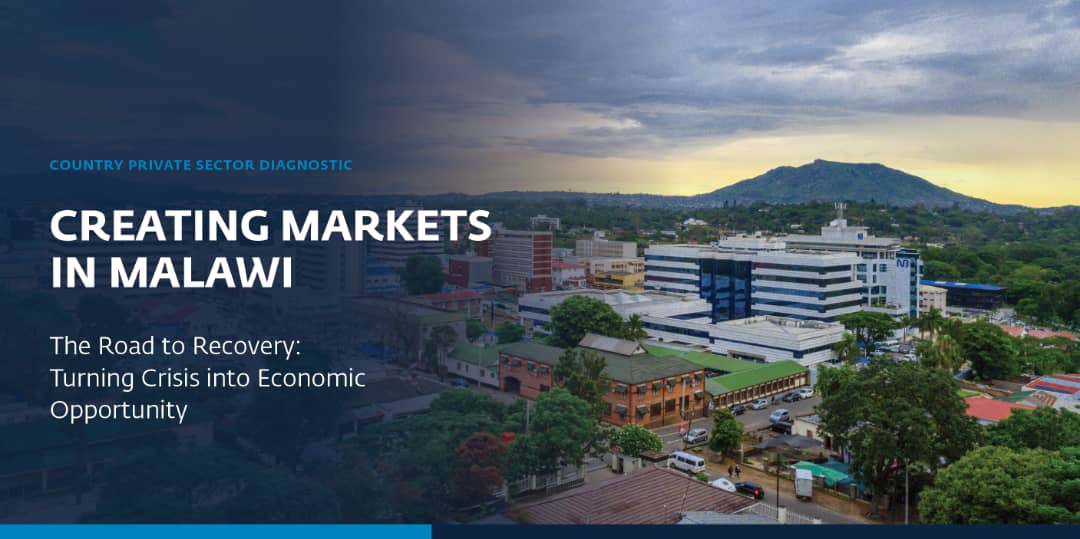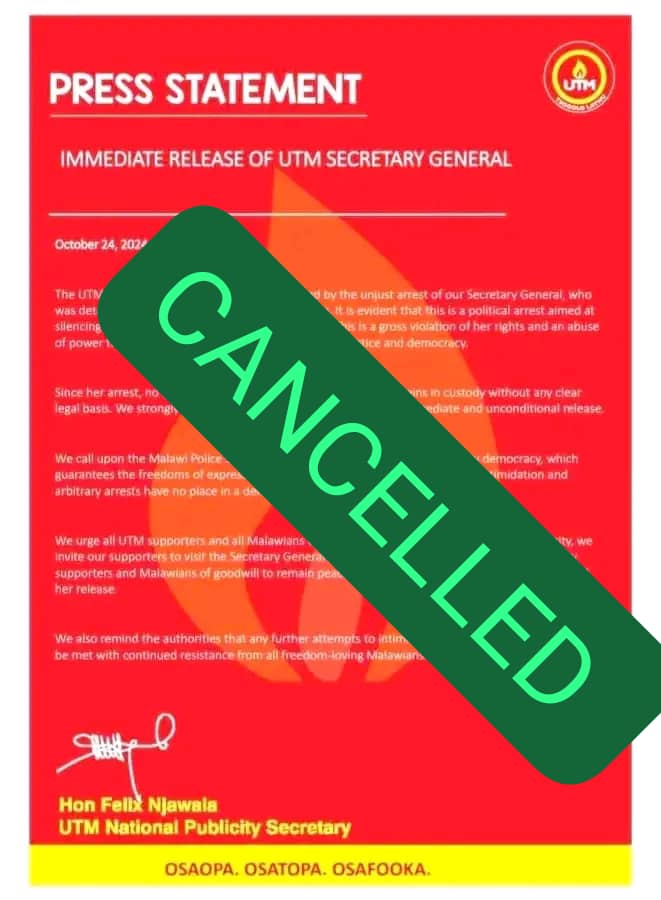By Burnett Munthali
The Democratic Progressive Party (DPP) has placed private sector growth and industrial development at the heart of its economic strategy for the period 2025 to 2030.
In its manifesto, the party emphasizes that a thriving private sector and industrial base are the backbone of a strong and sustainable economy.
The DPP commits to creating jobs, boosting revenue, generating foreign exchange, and empowering Malawians through targeted economic interventions.
The plan lays out a vision to support private sector growth, promote industrialization, empower small and medium enterprises (SMEs), and expand trade both locally and internationally.
Central to the party’s vision is increasing manufacturing’s contribution to Malawi’s GDP from the current 9.37 percent to 15 percent within five years.
The DPP pledges to address supply-side constraints in the economy to unlock the potential of Malawi’s youthful and skilled population.
Supportive trade-related infrastructure will be developed to encourage both domestic and foreign investment.
The industrial sector will be revamped with a deliberate focus on agro-processing, mining, and competitive services.
Investor-friendly policies will be implemented by leveraging enabling laws, information technology, innovation, and skilled human resources.
The party also outlines ambitious industrialization initiatives, including the establishment of Special Economic Zones (SEZs) and industrial parks in Luwinga, Magwero, Chigumula, and Matindi.
Energy investment will be scaled up, and the national energy mix will be rationalized to support industrial growth.
Graduates and skilled professionals will be linked to SMEs, cooperatives, and large enterprises to strengthen productivity.
Industrial clusters for metal fabrication, wood products, electronics, garments, leather, and oil-seed products will be developed in strategic townships.
The Malawi Investment and Trade Centre (MITC) and investment fora will be revitalized to attract investors.
Tourism potential will be showcased through Takulandirani Tourism Expos designed to draw global attention to Malawi’s unique offerings.
A government-owned holding company with a minimum of K500 billion will be established to drive development in key sectors.
On the macroeconomic front, the DPP promises to improve fundamentals by targeting single-digit inflation and keeping the policy rate at or below 12 percent.
The party also pledges to maintain a stable exchange rate and implement an investor-friendly tax regime.
Property rights will be secured, while commercial and labor disputes will be resolved fairly to protect businesses and employees alike.
Industrial and value-added mining will be promoted nationwide, supported by the capitalization of Malawi Mining Investment Company (MAMICO) with at least K500 billion.
The manifesto also places SMEs and cooperatives at the center of its economic strategy.
Development Finance Institutions such as MAIIC and the Export Development Fund (EDF) will be strengthened to support startups, large enterprises, and exporters.
A Community Credit Fund (CCF) will be introduced to increase financial inclusion for SMEs and cooperatives.
Tailor-made financial products will be developed to support the working class and the “missing middle” sector.
Malawians will be mobilized into SACCOs and community or cooperative banks to widen access to finance.
The DPP also prioritizes standards and quality assurance to ensure Malawian products compete on both domestic and international markets.
To achieve this, the party will strengthen SQAM systems and establish laboratories in Mzuzu and Lilongwe, along with a mobile lab for rural areas.
Rural and cottage industrialization will be promoted through business financing schemes, government procurement policies, and stronger value chain linkages.
Local production will be prioritized to reduce imports, while value addition initiatives such as OVOP dhal processing equipment will be utilized for exports.
In terms of trade and commerce, specialized agricultural commodity markets with refrigeration and storage will be established in Jenda, Lizulu, Tsangano Turn-off, Bvumbwe, Khwisa, and Salima.
Export markets will be expanded through regional integration, bilateral agreements, and multilateral trade systems.
Malawi’s diplomatic missions abroad will actively promote exports and attract foreign investment.
National and regional trade fairs, agricultural expos, and SME exhibitions will be revitalized to showcase Malawian products.
The manifesto further pledges to fully implement remaining One-Stop Border Posts (OSBPs) at Songwe, Muloza, and Chiponde to ease cross-border trade.
In summary, the DPP’s economic blueprint presents a comprehensive and actionable plan to transform Malawi’s private sector, strengthen industrial capacity, and expand trade.
By tackling structural challenges, promoting investment, and empowering SMEs, the party envisions a competitive and inclusive economy that generates sustainable jobs and positions Malawi as a key regional player.
The manifesto closes with a direct call to voters ahead of the September 16, 2025 elections to back experienced and proven leadership for economic progress.




